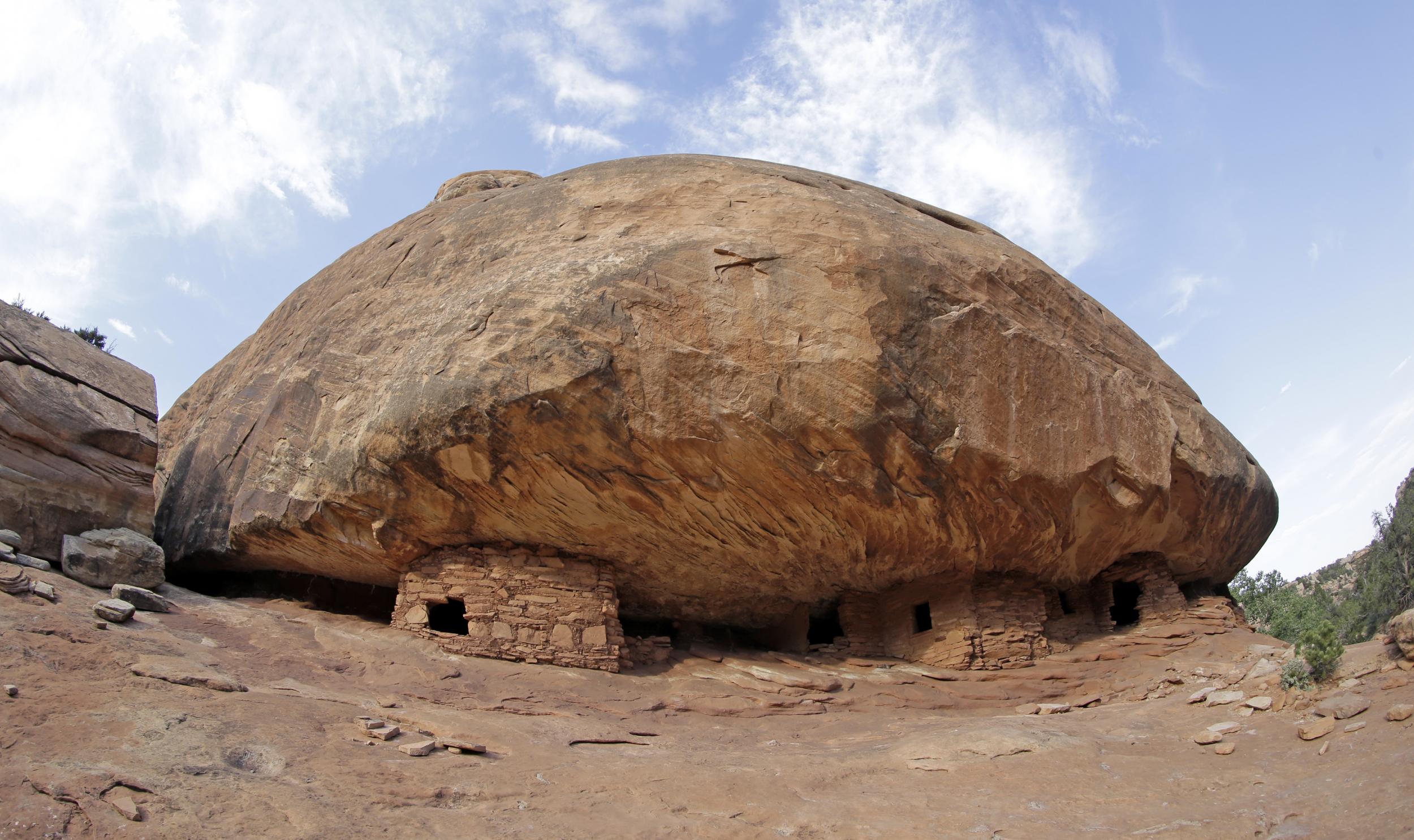Donald Trump signs executive order that could allow companies to mine and drill for oil at national monuments

President Donald Trump has signed an executive order that critics say could lead to the removal of decades' worth of federal land protections.
The order directs Interior Secretary Ryan Zinke to review the lands previously designated as monuments, and suggest changes. Critics say this will allow the Trump administration to roll back protections that prevent drilling, mining and logging on the public land.
For more than 20 years, presidents have used the Antiquities Act to designate certain federal lands and waters as national monuments. With that designation comes certain protections – including, in some cases, bans on logging, mining, and drilling.
Mr Zinke said the president is concerned these designations "may have resulted in loss of jobs, reduced wages and reduced public access."
"The president believes, like I do, that many of the neighbours in the western states of the federal government can be a good neighbour," Mr Zinke said. "We can protect areas of cultural and economic importance, and they can use the federal lands for economic development when appropriate."
Under the executive order, Mr Zinke will review all monuments designated after 1996. That includes monuments such as the Castle Mountains in California, Gold Butte in Nevada, and the northern rim of the Grand Canyon. The order does not automatically rescind the status of any monument – in fact, it is untested whether a president can unilaterally do so. But it does direct Mr Zinke to suggest "legislative changes or modifications" to the monuments under review.
Environmental activists, was well as some senators and representatives, were quick to express their concern with the order.
"No president has ever called into question any national monument protected by the Antiquities Act until President Trump," Senator Catherine Cortez Masto of Nevada said in a statement. "His unprecedented executive order threatens decades' worth of conservation efforts and could potentially revoke designations to places that have significant cultural and historical value."
Senators from and New Mexico, California, Oregon, Colorado, and Washington State signed onto a letter asking Mr Trump to leave the current protections in place.
Much of the current debate revolves around Bears Ears National Monument – a 1.35 million-acre swatch of land designated by former President Barack Obama.
Native American tribes successfully lobbied Mr Obama to protect the land from looting, vehicle damage and vandalism. The area contains some of the country's best-preserved rock art and artefacts from the ancient Pueblo civilisation.
Opponents of the move, however, argued Mr Obama should have used legislation – rather than executive power – to make the designation. Others were frustrated that the land could no longer be used for mining or development.
Mr Trump on Wednesday referred to his predecessor's use of the Antiquities Act as a “massive federal land grab.”
“Today we are putting the states back in charge,” he said at the signing. “...It’s time we ended this abusive practice.”
Join our commenting forum
Join thought-provoking conversations, follow other Independent readers and see their replies
Comments
Bookmark popover
Removed from bookmarks